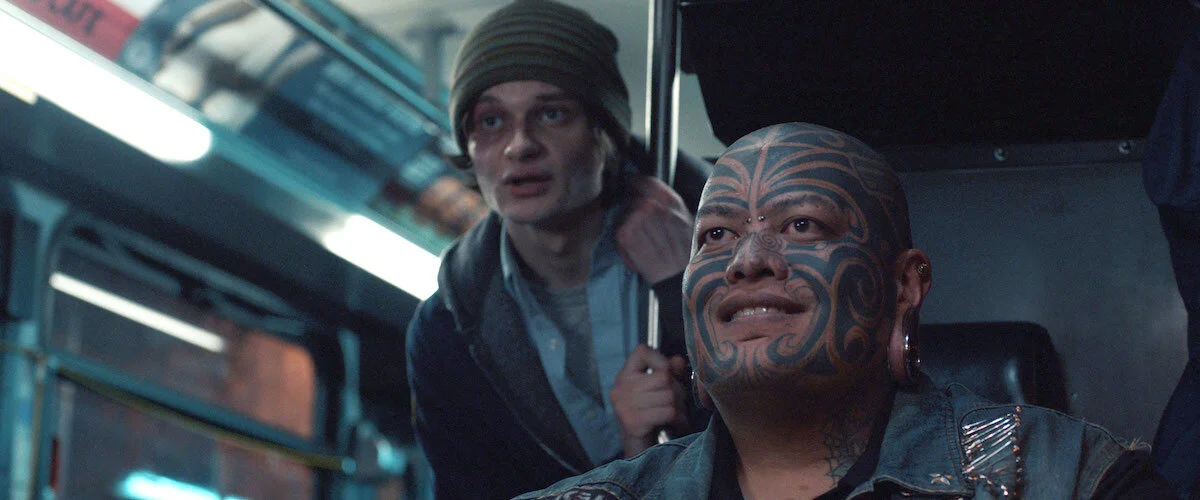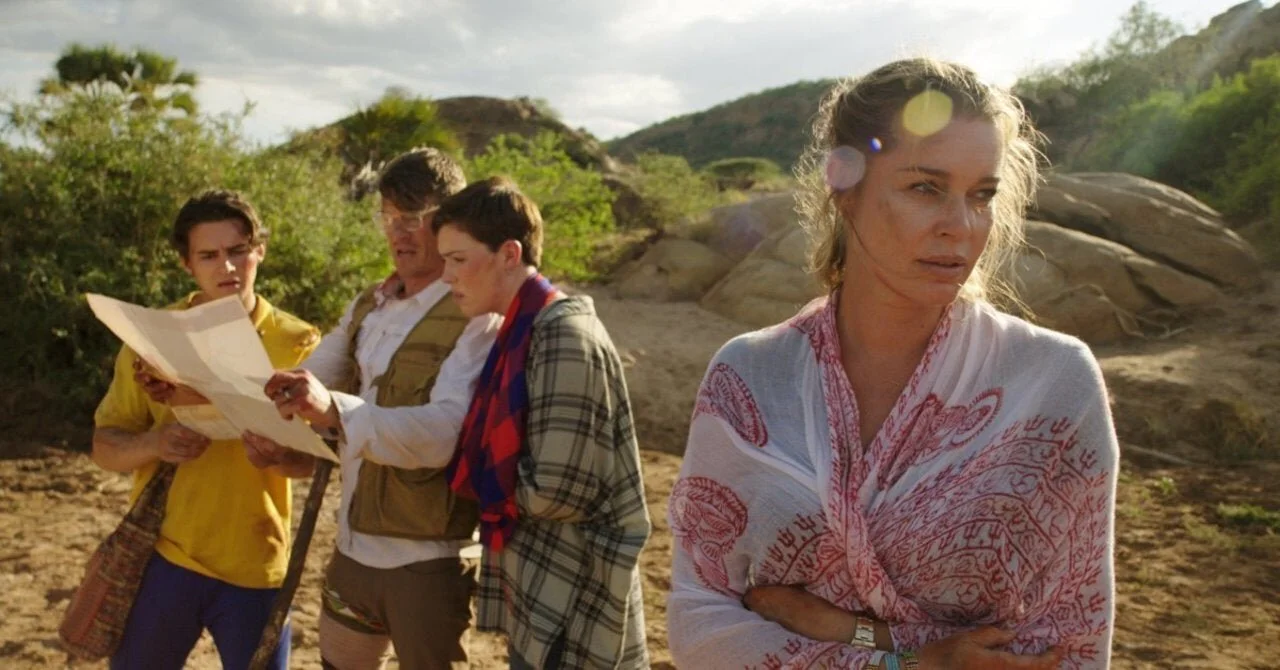Drunk Bus (2021)
Glean and Sober
I don’t know if there’s a new comedy sub-genre being born, but the contractions are definitely getting closer. Between Cooper Raiff’s Shithouse last year, and co-directors Brandon LaGanke and John Carlucci’s Drunk Bus, the age of the deceptively named, semi-autobiographical, and raunchy-but-revelatory campus comedy is almost upon us.*
The key to understanding what makes both films stand out as something new begins with their titles. Shithouse is as arm’s-length a name as I’ve ever heard, and one of the few real criticisms I’ve read of the movie is the fact that its title is practically a dare. The same goes for Drunk Bus, to a lesser extent.
Watch the trailer or look at the poster, and you might get the idea that this is twenties-targeted, becoming-an-adult story is a throwback to the comedies of the era in which it is set (2006). You might think of Road Trip, Old School, The Girl Next Door, or even Harold and Kumar Go to White Castle—decidedly anti-woke Beers, Boobs, and Bros farces that were themselves callbacks to two-decade-old sex romps like Porky’s, Risky Business, and their countless imitators.
True to that formula, Drunk Bus centers on a heartbroken, directionless guy who gets help growing a spine from a larger-than-life party animal, via the magic of self-respect and drugs. Also true to the formula, the movie features a healthy dose of poop jokes, masturbation shame, and pranks that by today’s standards could run afoul of hate crime legislation.
Unlike raunchy comedies past, Drunk Bus (and Shithouse, too) is based on the filmmakers’ real-life experiences. Co-director Brandon LaGanke really did drive the “drunk bus” around his college campus for four years, a free service to ensure that his inebriated classmates made it safely back to their dorms/houses after partying all night. Though the movie is “inspired by real shit”, screenwriter Chris Molinaro clearly has fun injecting some whole-cloth hijinks into the mix, including the frat guys who egg the bus every night; the co-ed with night terrors; the shockingly inappropriate dispatcher (Will Forte), etc.**
The really solid comedy and the recognizably earnest emotions come from the film’s two leads. As Michael, Charlie Tahan brings a pitying authenticity to the skinny mope who just wants to get enough accident-free hours under his belt to earn a salaried promotion. As Pineapple, the wild-eyed, tattooed Samoan hulk assigned to protect Michael following an assault on the bus, Pineapple Tangaroa delivers a star-making performance.
Yes, Pineapple plays Pineapple—which makes sense because this is one of the rare instances where a character drawn from life is played by the person who inspired him. Pineapple really was Brandon’s muscle on those late-night campus loops, and the authenticity of this particular casting not only keeps Drunk Bus afloat but makes it special.
There’s something unique about the actor that I’ve been struggling to put my finger on since watching the movie earlier this week. It has something to do with the fact that he plays himself, minus the Professional Actor sheen of “performance”—minus, too, the rough-around-the-edges stiffness of non-actors forced to perform (think of every cringy commercial in which a pro athlete “acts”). I’m reminded of Rauol Duke describing his crazed Samoan lawyer, Dr. Gonzo: “One of God’s own prototypes. A high-powered mutant of some kind never even considered for mass production. Too weird to live, and too rare to die.”
Fans of the 1985 cult comedy Better Off Dead will also find a comfy seat on the Drunk Bus. Packed with outrageous characters, absentee role models, bizarre daydreams, and a would-be love interest (Kara Hayward) who must compete with the memory of the protagonist’s stuck-up ex-girlfriend (Sarah Mezzanotte), LaGanke, Carlucci, and Molinaro clearly have affection for Savage Steve Holland’s eccentric, sex-free take on the sex comedy (indeed, there are no gratuitous displays of flesh here—though Drunk Bus does feature one of the most sensual fantasy sequences I’ve seen in years).
Even this comparison is slightly off, thanks to a willingness on the filmmakers’ part to use their inspiration as a springboard instead of a template.*** Michael and Pineapple’s paths don’t necessarily end where you’d expect them to, and there’s a wonderful sense at the end of Drunk Bus that there are a dozen more stories that could begin after the credits roll.
Speaking of which, that may be the final component as to why these films deserve their own section on the “Comedy” shelf. This idea relates back to the autobiographical component, which stamps the material with lived experience. The outgrowth of that is perspective—the idea that LaGanke and Raiff got away from the circumstances that inspired their films, yet were somehow able to channel (with the help of a co-director and screenwriter in LaGanke’s case) the genuine battered spirit of lost youth with the “It Gets Better” reassurances of someone who’s made it out the other side.
There’s an open-endedness to both films that college students tend not to get—but which adults understand as simply the way life goes, full of paths that lead to dead-ends, roundabouts, and occasionally freedom from lame, typical bullshit.
*I say “almost” because two movies, less than a year apart, hardly qualify as an “age”.
**I can only assume these were some of the made-up elements. If not, LaGanke should petition his alma mater to be renamed “Movie College College”.
***Yes, I used this exact phrase in a review earlier this week. Sue me. It fits, and I like it.
Watch Ian’s interview with Drunk Bus co-directors John Carlucci and Brandon LaGanke on the Kicking the Seat YouTube channel.





